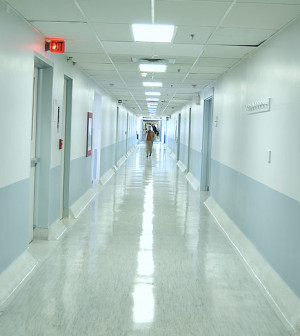- Recognizing the Signs of Hypothyroidism
- 10 Strategies to Overcome Insomnia
- Could Artificial Sweeteners Be Aging the Brain Faster?
- Techniques for Soothing Your Nervous System
- Does the Water in Your House Smell Funny? Here’s Why
- Can a Daily Dose of Apple Cider Vinegar Actually Aid Weight Loss?
- 6 Health Beverages That Can Actually Spike Your Blood Sugar
- Treatment Options for Social Anxiety Disorder
- Understanding the Connection Between Anxiety and Depression
- How Daily Prunes Can Influence Cholesterol and Inflammation
Health Highlights: Jan. 10, 2014


Here are some of the latest health and medical news developments, compiled by the editors of HealthDay:
Food Stamps Cuts Will Lead to Higher Health Costs: Critics
Cuts to the food stamp program could lead to bigger health bills for the federal government, critics warn.
Food stamps help feed 1 in 7 Americans and cost nearly $80 billion a year. A bill making its way through Congress is certain to include cuts to the food stamp program. Republicans want larger cuts than Democrats. Currently, Congressional negotiators are looking at cutting the food stamp program by about $800 million a year, the Associated Press reported.
The health and financial effects of hunger have not played a large role in the debate taking place in Congress. But critics say food stamp program reductions could lead to higher Medicaid and Medicare costs.
“If you’re interested in saving health care costs, the dumbest thing you can do is cut nutrition,” Dr. Deborah Frank of Boston Medical Center, founder of the Children’s HealthWatch pediatric research institute, told the AP.
“People don’t make the hunger-health connection,” she added.
Potential hunger-related health risks include higher rates of diabetes and developmental problems among young children, the AP reported.
A study released last year by the Robert Wood Johnson Foundation and The Pew Charitable Trusts estimated that a reduction of $2 billion a year in food stamps could lead to a $15 billion rise in medical costs for diabetes over the next decade.
Other studies suggest that children who don’t get enough to eat are 30 percent more likely to have been hospitalized for a number of illnesses, the AP reported.
Children account for about half of food stamp recipients, and seniors for 10 percent.
“Food is medicine,” Massachusetts Rep. Jim McGovern, who has led the Democrats’ efforts to protect the food stamp program, told the AP. “Critics focus almost exclusively on how much we spend, and I wish they understood that if we did this better, we could save a lot more money in health care costs.”
Copyright © 2026 HealthDay. All rights reserved.










